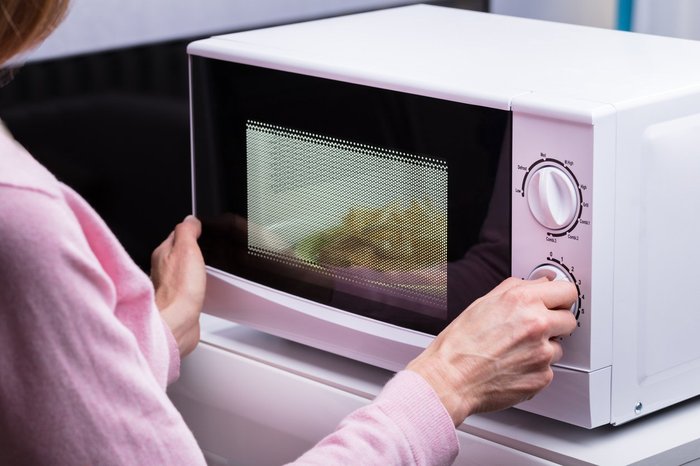Around 16% of a household's energy use is in the kitchen, according to the Energy Saving Trust. Manage your cooking and cooling costs and reduce your bills with our energy efficiency tips for food preparation.
Put your microwave to work
Microwaves use less energy than ovens. The Centre for Sustainable Energy estimates that the cost to use an oven for 10 minutes is around 8 to 9p, compared with 3 to 6p for a microwave. So, if you have one it's worth using it more. Microwaves are also energy-efficient because they only heat the food itself rather than warming the air around the food, and they don't use energy to warm up.
- Instead of cooking every night, cook in larger amounts and then just reheat food on subsequent days.
- Don't forget that foil, metal, and crockery with metal trims should never be put in the microwave because they could catch fire.
- Microwaves can be used for more than just reheating leftovers. Search for microwave recipes online to find ways to recreate favourite meals with a microwave.
- If you can invest in one, a slow cooker is even more cost-efficient to run than a microwave. The slow cooking method, simmering food at low temperatures for a few hours, brings out the flavour of cheaper ingredients like root vegetables and budget-friendly cuts of meat.

Use your hob more efficiently
- Use a kettle rather than bringing cold water to the boil on the hob and only use as much water as you need to cover the food you're cooking.
- Choose the right-sized pan to cook your food, so you're not heating up too much water unnecessarily, and use the right-sized ring for every pan, making sure the saucepan completely covers the gas / electric ring.
- Pop a lid on the pan to trap the heat into it and cook your food faster.
- Cook two things in the same pan of boiling water, using a steamer to cook your vegetables over potatoes, rice or pasta. If you haven’t got a steamer, make your own steamer by using a medium or large saucepan, sitting a colander on top and covering it with the saucepan lid.
Keep your fridge cold
- Before you put food into the fridge let it cool down completely so your appliance doesn't have to use extra energy to cool it down.
- Aim to keep your fridge temperature between 3 and 5 degrees Celsius to keep food fresh for as long as possible, and never leave the fridge door open unnecessarily.
- Before you start cooking, make a list of all the cold ingredients you'll need, then get them out of the fridge in one go rather than opening and closing the fridge or freezer door multiple times, letting the cool air escape and using more energy.
- Instead of using energy to defrost food in the microwave, defrost it in the fridge overnight or at the beginning of the day. As an extra benefit the frozen food will help to keep your fridge cool as it thaws.
Set up an oven timetable
- Pre-heat your oven for just a few minutes and switch it off five to 10 minutes before your food is done, as ovens retain their set temperature for a short period after they are switched off.
- If you're using your oven, fill it with as many dishes as possible at the same time to use the energy as efficiently as you can. For example, if you're cooking a shepherd's pie or a pasta bake, could you roast vegetables at the same time and eat them later in the week?
- Keep the oven door clean so you can see your food through it rather than having to open the door (the oven will lose heat every time you open the door to check on your food and will need more energy to return to the required temperature).
